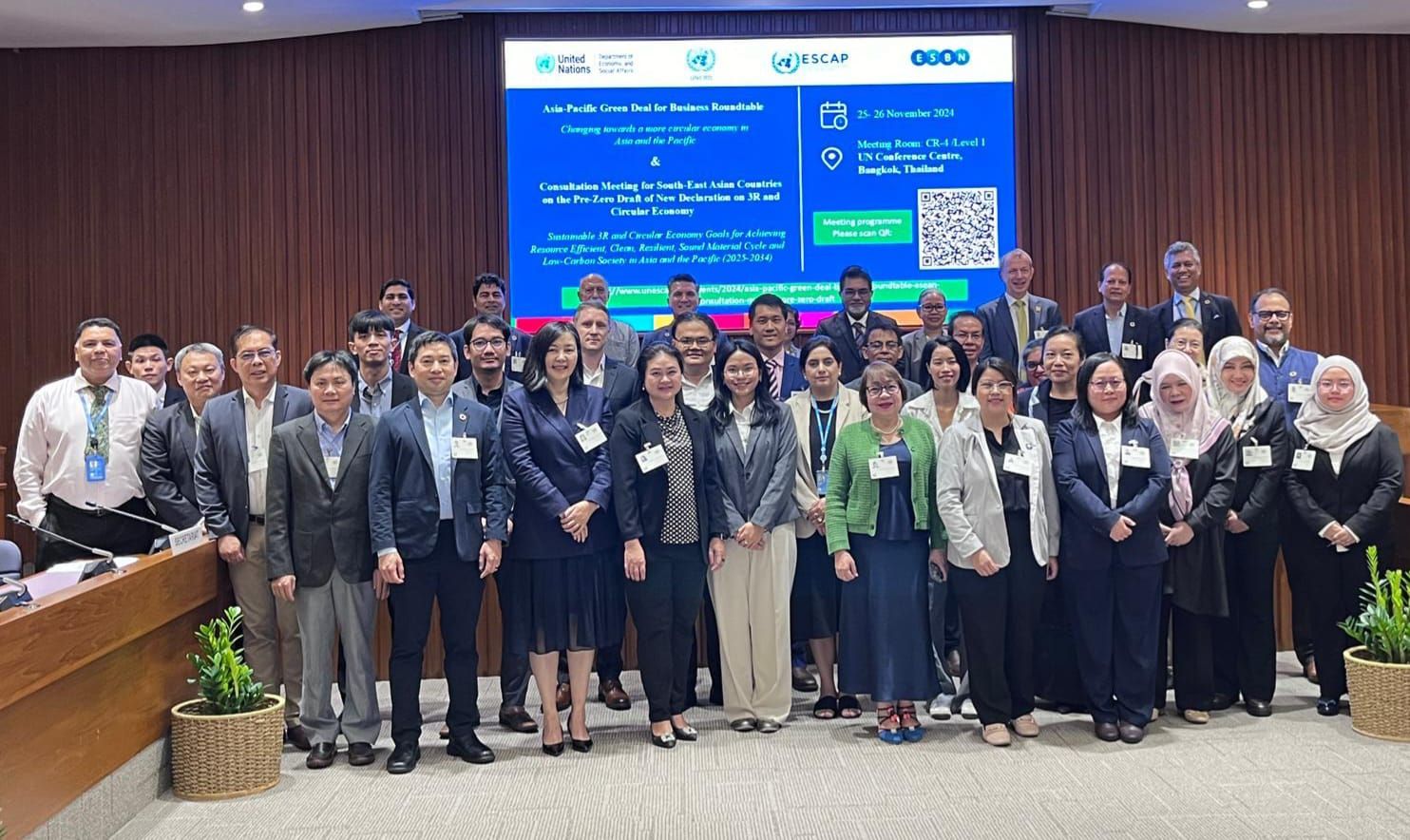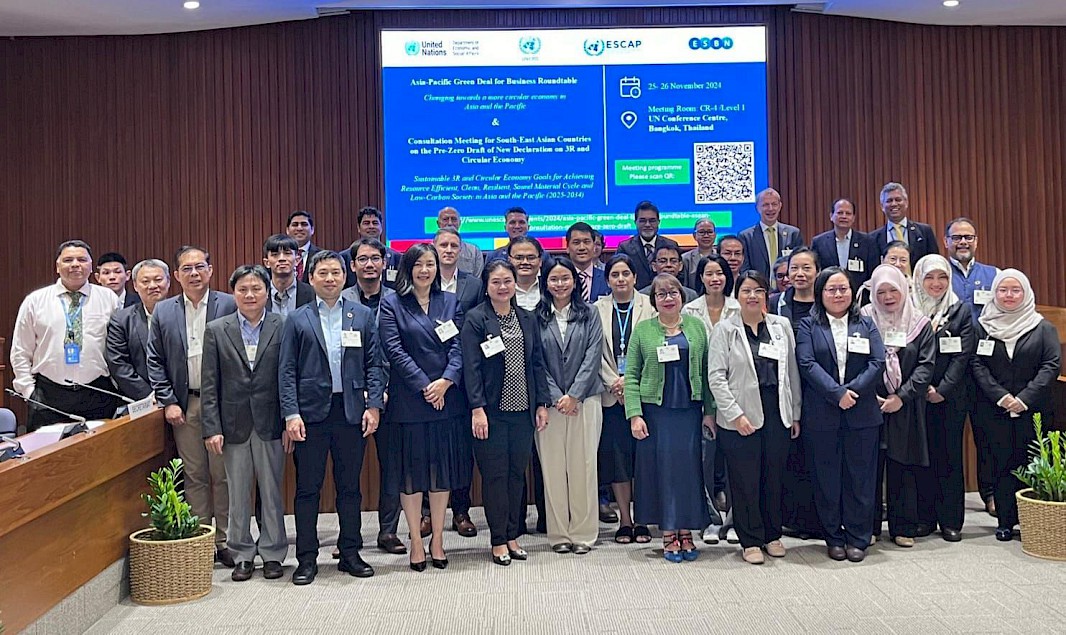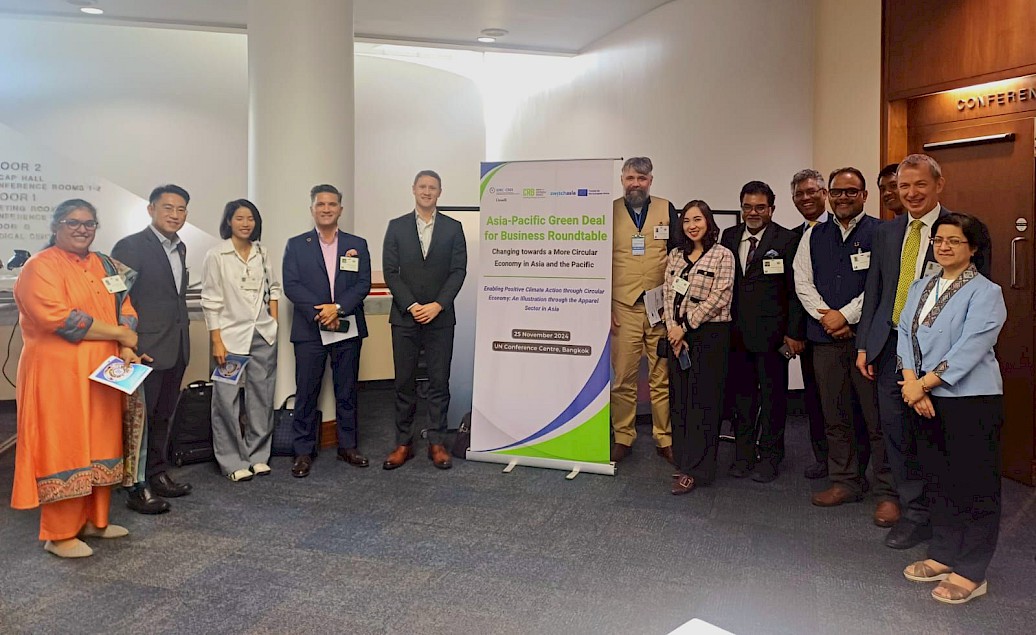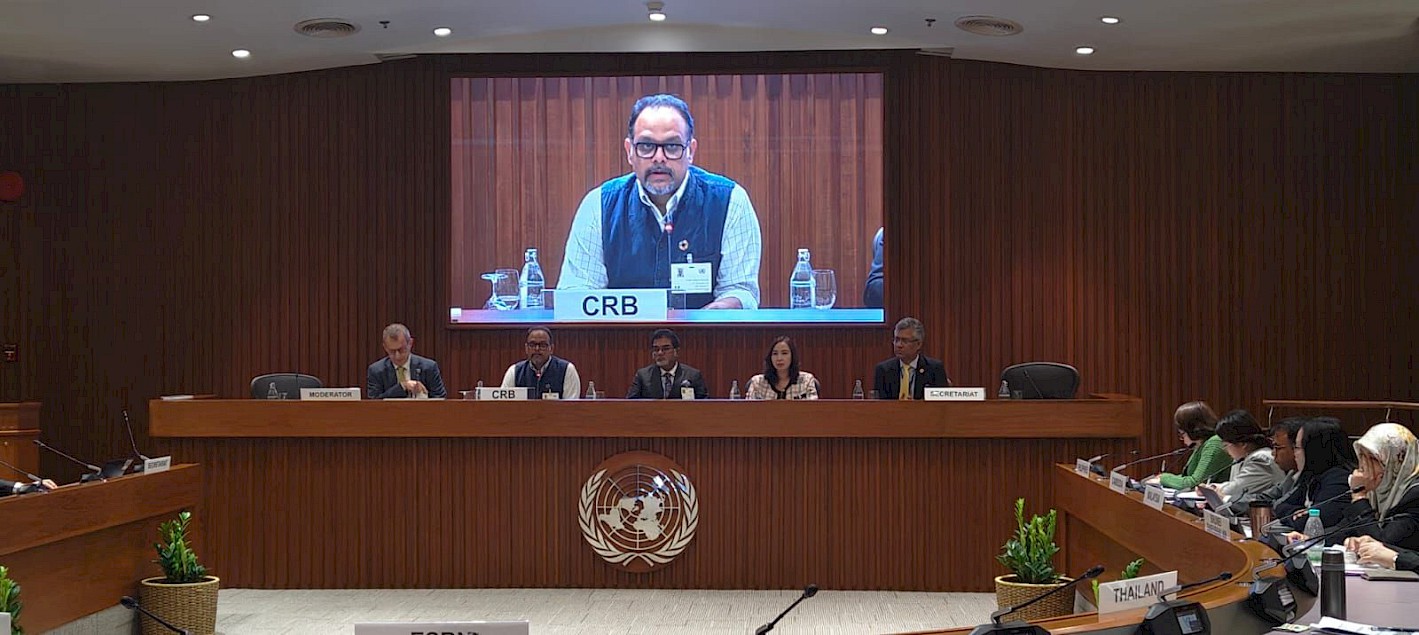UN ESCAP Side Event: Enabling Positive Climate Action Through Circular Economy: An illustration through the apparel sector in Asia

Background
A constructive dialogue to channel evidence-based policy actions to drive circular economy in the Asia Pacific region is an imperative. UNESCAP, IDRC, and CRB will host this dialogue in collaboration with the EU SWITCH Asia Policy Support Component to identify tangible key priorities for initiating actions on the advancing the circular economy. This dialogue will involve experts and organisations from the region and the international level, including industry, academia, civil society, policymakers and international organisations. The textile sector is one of the most important sectors of the Asia Pacific region in terms of jobs, incomes and exports. The current market size is estimated at USD 391.20 billion, and expected to reach USD 443.72 billion by 2029, growing at a CAGR of 2.55%6. While China leads the pack, some of the other key apparel and textile manufacturers are Bangladesh, Cambodia, India, Vietnam and Pakistan. However, garment sector is also under increasing scrutiny for its noncircularity, particularly the transition to fast fashion that has seen global garment production double during 2000 -2015, whilst at the same time reducing the average number of wears by an estimated 20%. T
The aim of the session is as follows:
- Underline (current and potential) benefits from driving circular products, strategies and business models in the APAC apparel and textile sector
- Identify priorities for decoupling the textile sector from environmental degradation whilst also supporting and improving human wellbeing. Build the evidence around opportunities and challenges at national and regional levels
- Examine the contribution of factors including finance, innovations, skilling, infrastructure and collaboration - to achieve these decoupling goal(s)
- Assess how textile value chain stakeholders could leverage the demand side to drive this transition (How can Asia’s GenZ and Millennials be engaged effectively on this agenda)
UN ESCAP, IDRC, and CRB hosted this dialogue in collaboration with the EU SWITCH Asia Policy Support Component to identify tangible key priorities for initiating actions on the advancing the circular economy. This dialogue featured ACEBA and the different business examples on circular economy developed under the Technical Advisory in Mobilising Business Action on Circular Economy in Southeast Asia.



Share:
